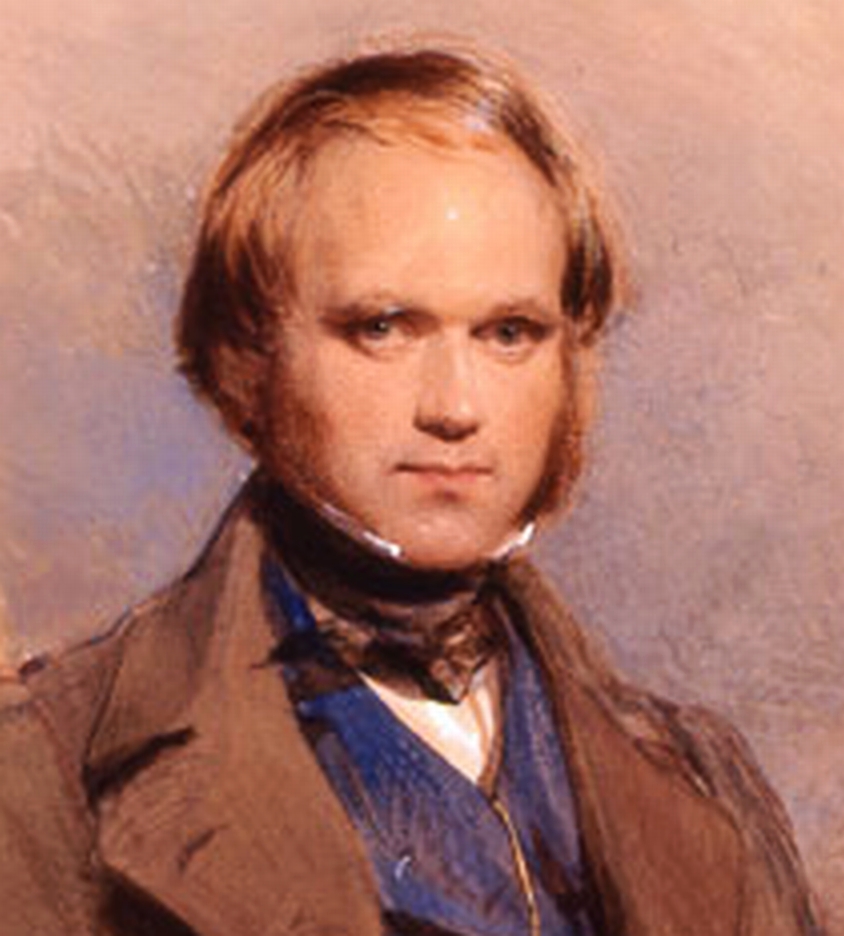Some
scientists have also been deeply religious people whose scientific findings
have clashed with their religious beliefs. The history of Science is filled
with accounts of people who felt they had to drop their faith in the Bible,
usually after much personal anguish, in order to continue to pursue science. However,
what their torments mean to our argument today is nothing. Their anguish does
not have any bearing on what science considers to be knowledge; only the
evidence does.

Charles
Darwin (Richmond) (credit: Wikipedia)
In
the mid-1800s, Charles Darwin hit the faithful and their institutions and beliefs
with probably the biggest of all the jolts. He gave an excellent scientific
explanation for life itself. Life on earth, by Darwin’s theory of evolution, had
evolved from a few simple cells to complex organisms with trillions of cells over
the course of millions (or, he guessed, perhaps billions) of years.
Darwin
had the theory, and he had the evidence to support it. The models of genetic
variation and natural selection can explain every life form on earth in all
their many subtle variations. Fossils in the rocks all over the world show the
stages through which life has developed and spread. Both chemical and physical
testing give predictable, consistent results that clearly support Darwin’s
theory. The evidence indicates that life, in all its complex forms on this earth, developed from a few
simple cells, by gradual increments, over billions of years.
Where
was the Bible then? The first chapter of the Bible, the Book of Genesis, has billions
of years of creation squeezed into a time scale of six days. The Darwinian theory
of evolution says this is ridiculous. Furthermore, the theory implies that
natural physical processes—those that can be observed, predicted, and even
manipulated—can account for all of the phenomena in reality, living and
non-living. For scientists, the concept of God is not needed in their
discussion of what this universe is or what human beings are. It isn’t even
relevant.
Darwin’s
theory of evolution was a shock of such magnitude that Church authorities and
most of the faithful who listen to them are still reeling from it and still
lashing out at it. Scientists who believe that the theory gives a true picture of
reality find these attacks annoying and silly. The evidence is there—mounds of
it. What evidence is there for the alternate explanation? One old book, written
by a bunch of priests, prophets, and disciples with vested interests and
sinecure jobs to protect, making claims about events they did not witness,
events that can’t be replicated, examined, or tested. It just isn’t Science.
In
fact, how can the so-called “faithful” — who every day derive most of the
comforts of their way of life from the ideas, discoveries, and inventions of scientists — be
such ingrates? It’s a sure bet that however much they may want to criticize the
broad range of studies and activities called science, they don’t want to starve and they don’t want their
electricity turned off. They certainly don’t want to be eating tainted food,
shivering in a hovel by a wood fire, watching their children die of mysterious “miasmas”.
In
spite of all of these accusations, however, the point of this book is to show
that the full description of both sides of this nasty quarrel is more complex
than what the last couple of paragraphs portray. For now, this small section on
the theory of evolution can be summarized by saying that Darwin’s theory, for
most thinking people, floored the Bible for the count. He had found a theory
that explained the greatest of the mysteries of our human experience, and he
had assembled the evidence to back up that theory.
The
Bible had been reduced, apparently, to a collection of myths and poems, with
some bits of one ancient tribe’s history woven in. God was like Zeus or Wotan, a
story-book character created by a gang of theocrats who played on human fears
in order to rule the masses.
No comments:
Post a Comment
What are your thoughts now? Comment and I will reply. I promise.